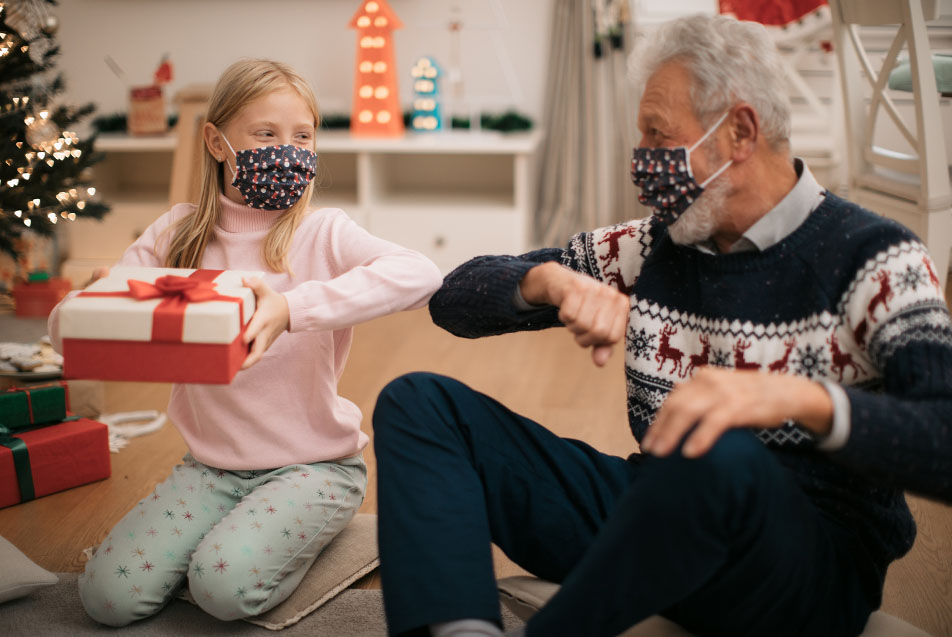
This post was written by Jason Row, MD, chief medical officer, Parkview Physicians Group.
The weather has turned cold, and the leaves have fallen. Thanksgiving was a few weeks ago, and now we're stepping into December, a month that is traditionally filled with holiday gatherings and festivities. But – thanks to COVID-19 – it's shaping up to be another unconventional holiday season. As you begin to make plans, you may be wondering whether it is safe to visit family and friends, especially those who are particularly vulnerable to infection, like the elderly or people with chronic diseases.
Symptom checker
Certainly, if you have symptoms of infection, you should not visit others. Instead, you should stay home and explore virtual and in-person options for care.
Gatherings
If you are feeling well, you can visit loved ones as long as you take certain precautions to protect them (and yourself). There are four precautions that will markedly reduce the risk of COVID-19:
- Gather outside, if possible. If your holiday celebration is in the Midwest, that may not be an option; but if it’s somewhere warm, then take advantage of the weather and meet outdoors.
- Wear masks. If everyone at the gathering wears a mask, the risk of transmitting COVID-19 is very low. The virus is spread primarily through respiratory droplets, which are tiny virus-containing droplets of saliva that leave the mouth and travel up to six feet whenever a person talks, coughs, sneezes or sings. A mask traps the majority of those respiratory droplets and thereby provides “source control.” A store-bought mask or a homemade cloth mask is sufficient. Please be aware that any mask with an exhaust valve is not recommended; it protects the wearer, but it does not provide source control, since it releases the wearer’s respiratory droplets into the surrounding air. Children 2 or younger should not wear a mask.
- Maintain social distancing. Keep a distance of six feet between people at all times, especially when eating (since you can’t eat with a mask on).
- Practice good hand hygiene. Wash your hands or use an alcohol-based hand sanitizer before and after eating and before touching your face. Since food is often passed around the table or served using common utensils, it is wise to avoid “finger food” and instead eat only with your own utensils.
Host etiquette
If you’re the host, then you might want to consider a few extra precautions.
- Give your guests a heads-up when you invite them that you will expect them to wear masks and practice distancing. This sets the expectation for everyone’s behavior, and it gives them the opportunity to decline if they don’t want to follow these safe practices.
- On the day of the event, have a few extra masks on hand, in case a guest forgets to bring one.
- Make hand sanitizer available for guests to use in the kitchen or dining room.
- When cleaning up during and after the gathering, wipe down the common surfaces with a bleach-based cleaning solution.
If you’re a guest, it’s a good idea to inquire about these safety practices before deciding whether to attend a gathering.
Keep it intimate
Evidence suggests that small gatherings — 10 people or less — are far less likely to become super-spreader events compared to larger gatherings. If you or your loved ones are concerned about COVID risk, it may be less stressful to celebrate the holidays “virtually.”
Following these precautions will help to ensure happy, healthy holiday gatherings and reduce the risk of the coronavirus being an uninvited guest who accompanies you or your loved one's home.



